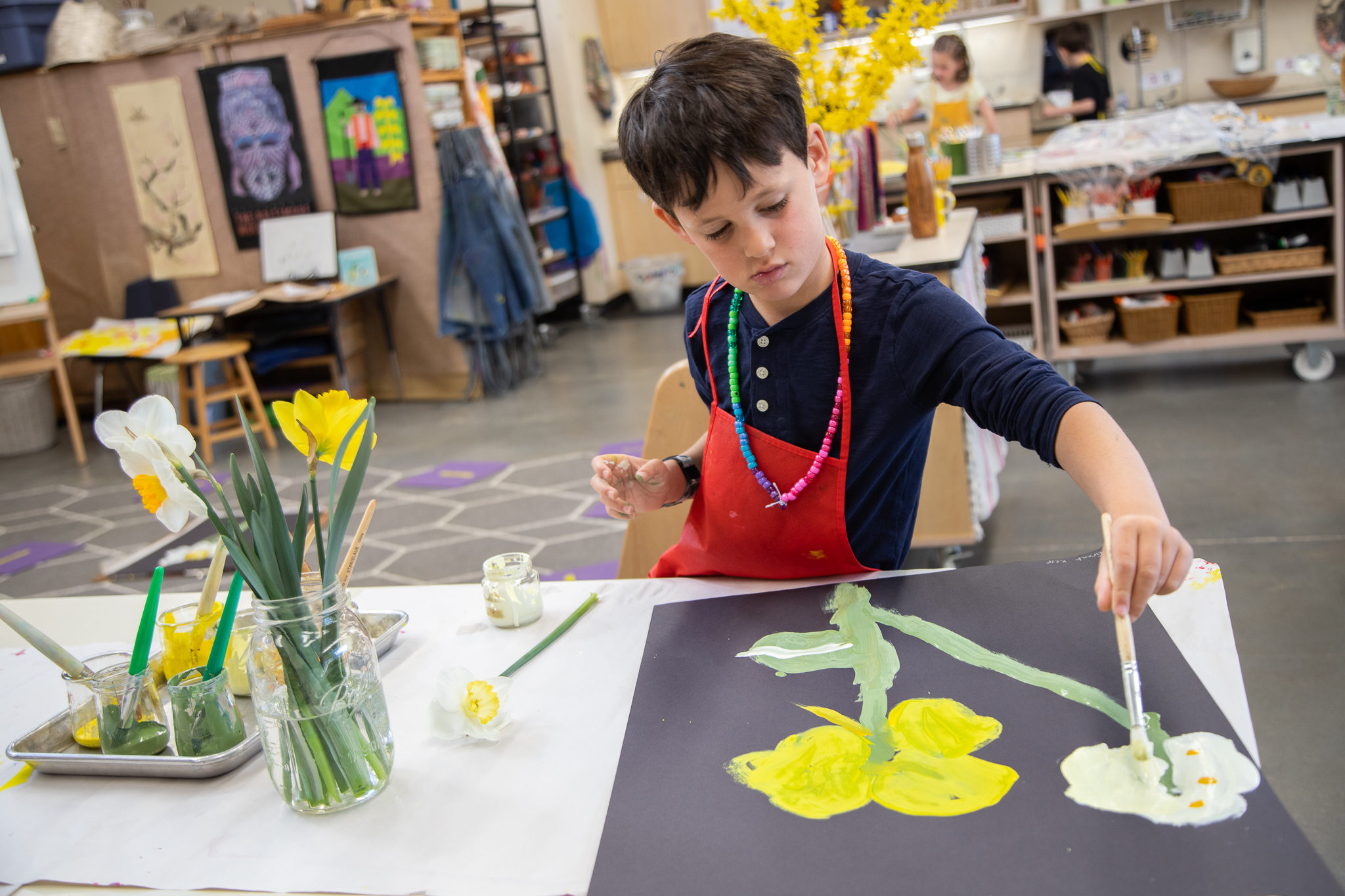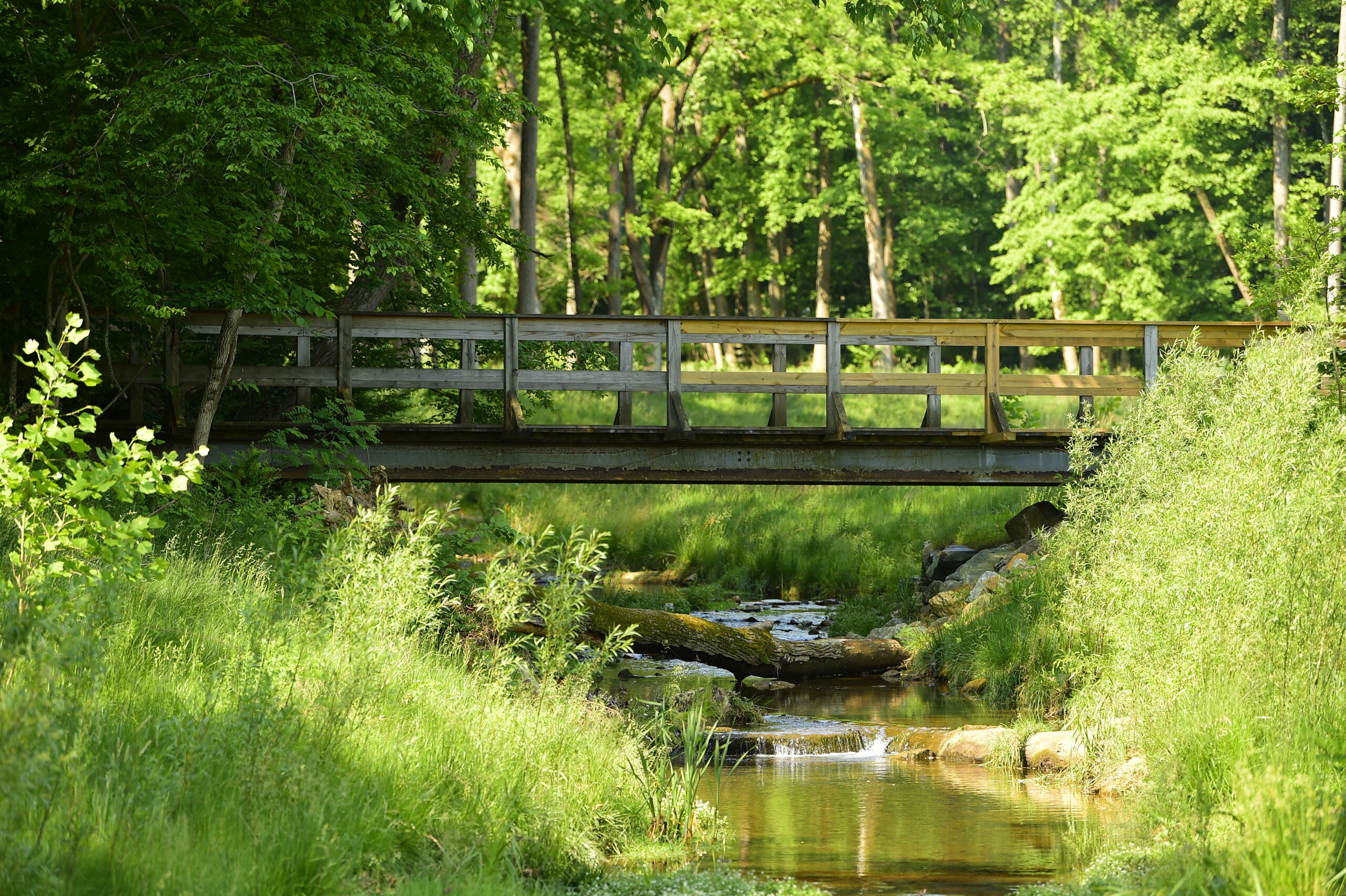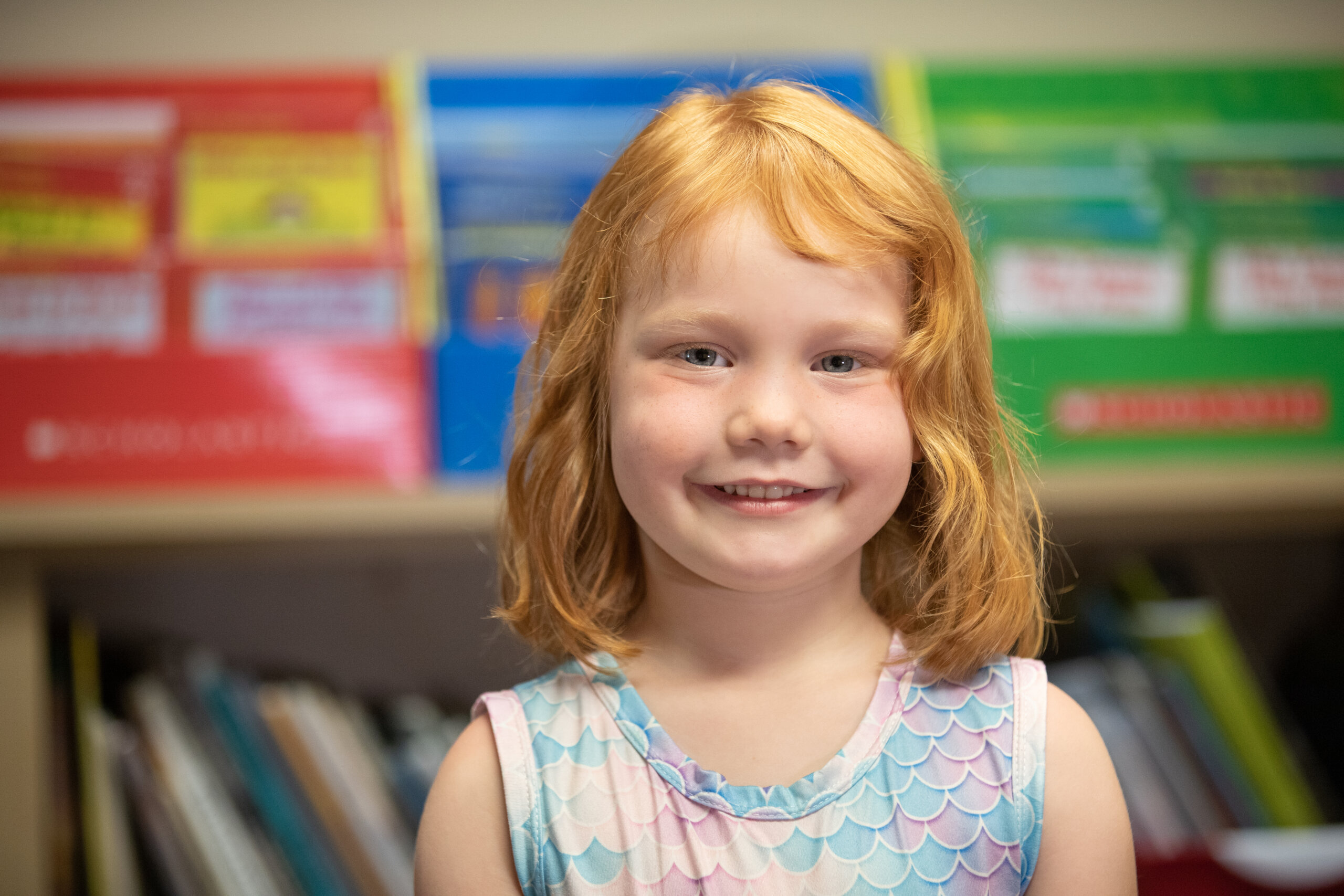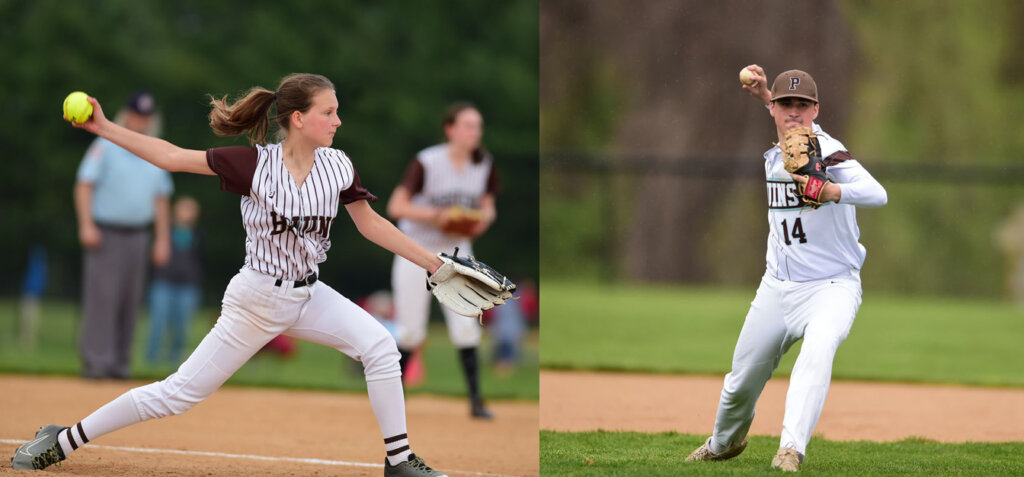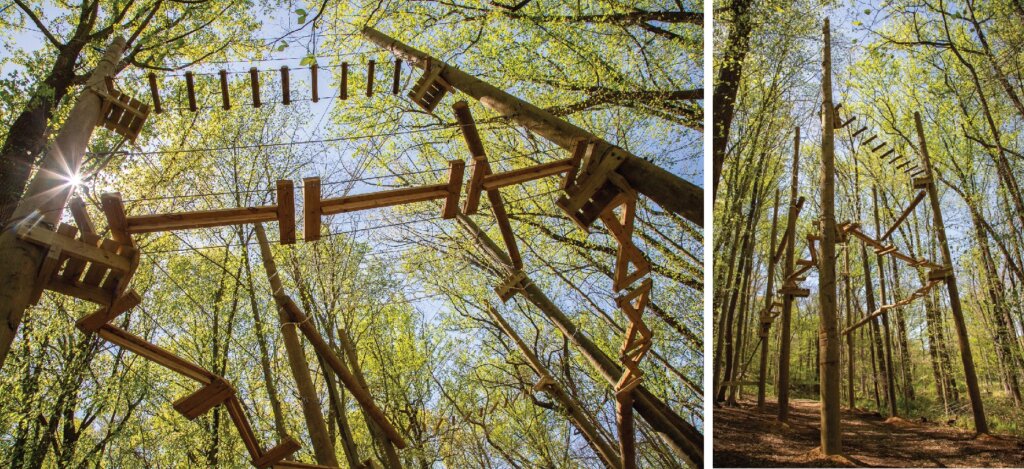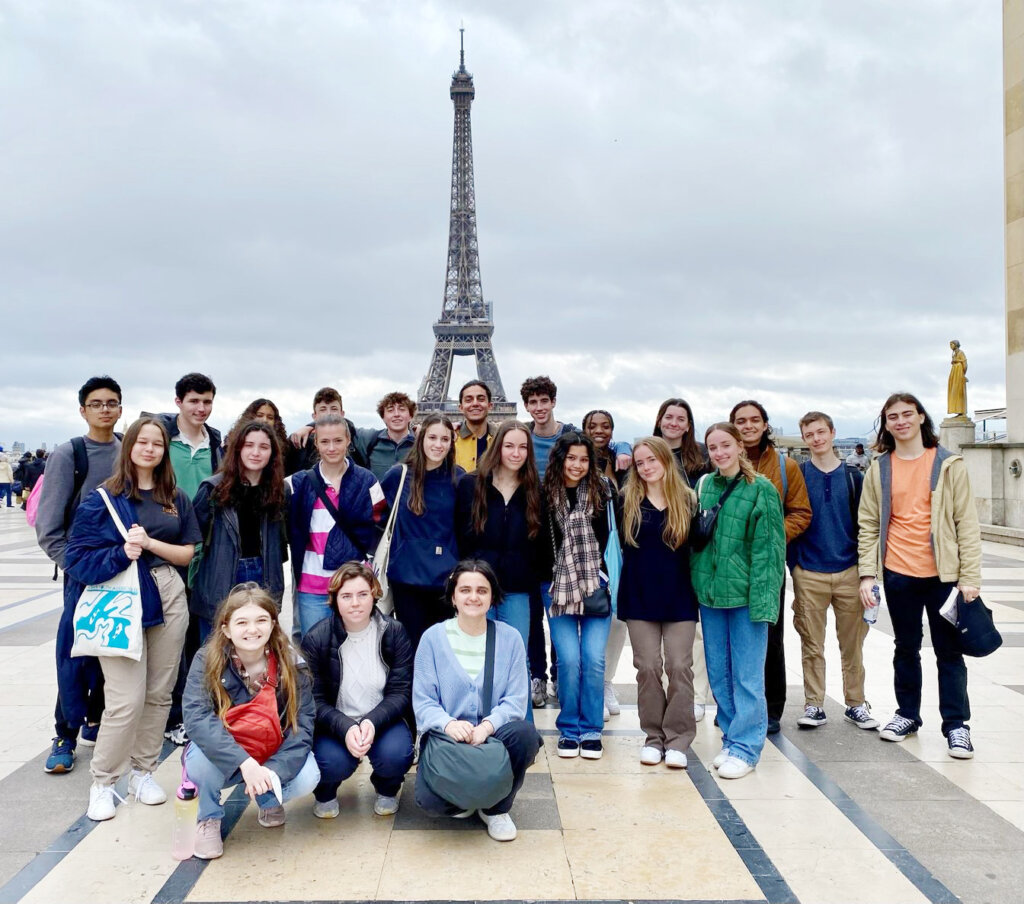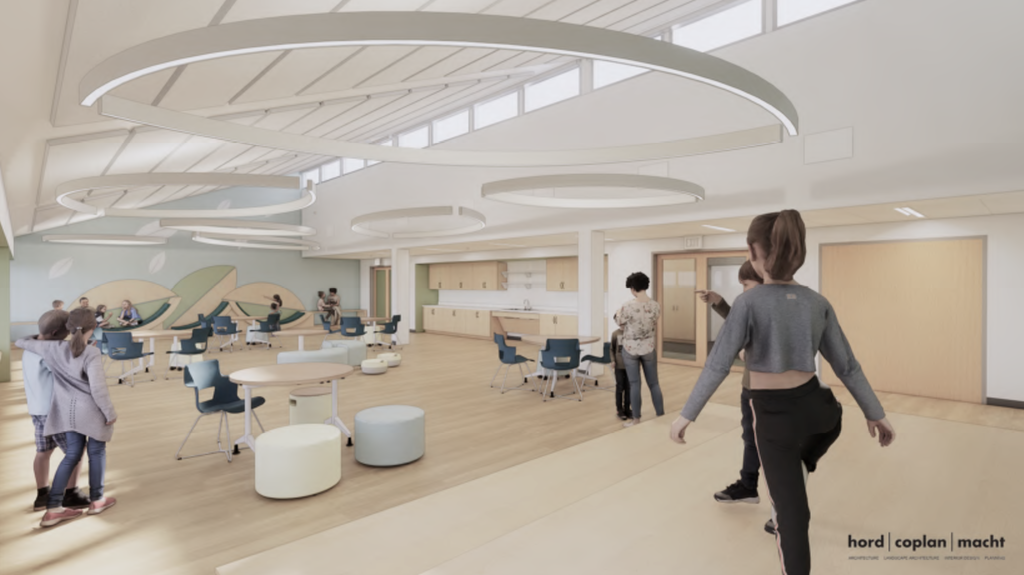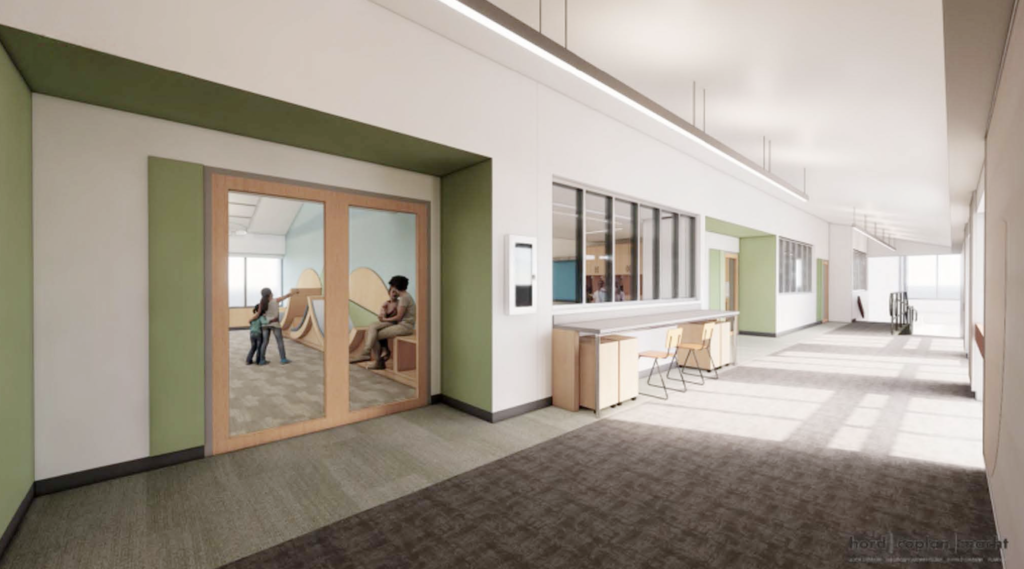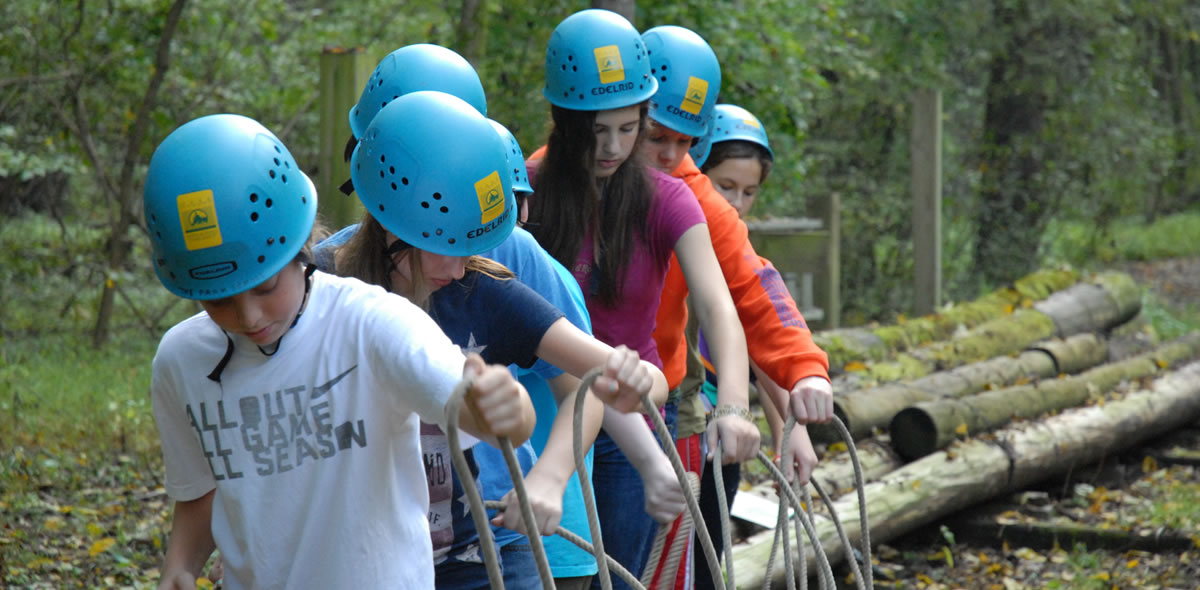A Day in The Life
The Lower School Experience: Pre-Kindergarten and Kindergarten
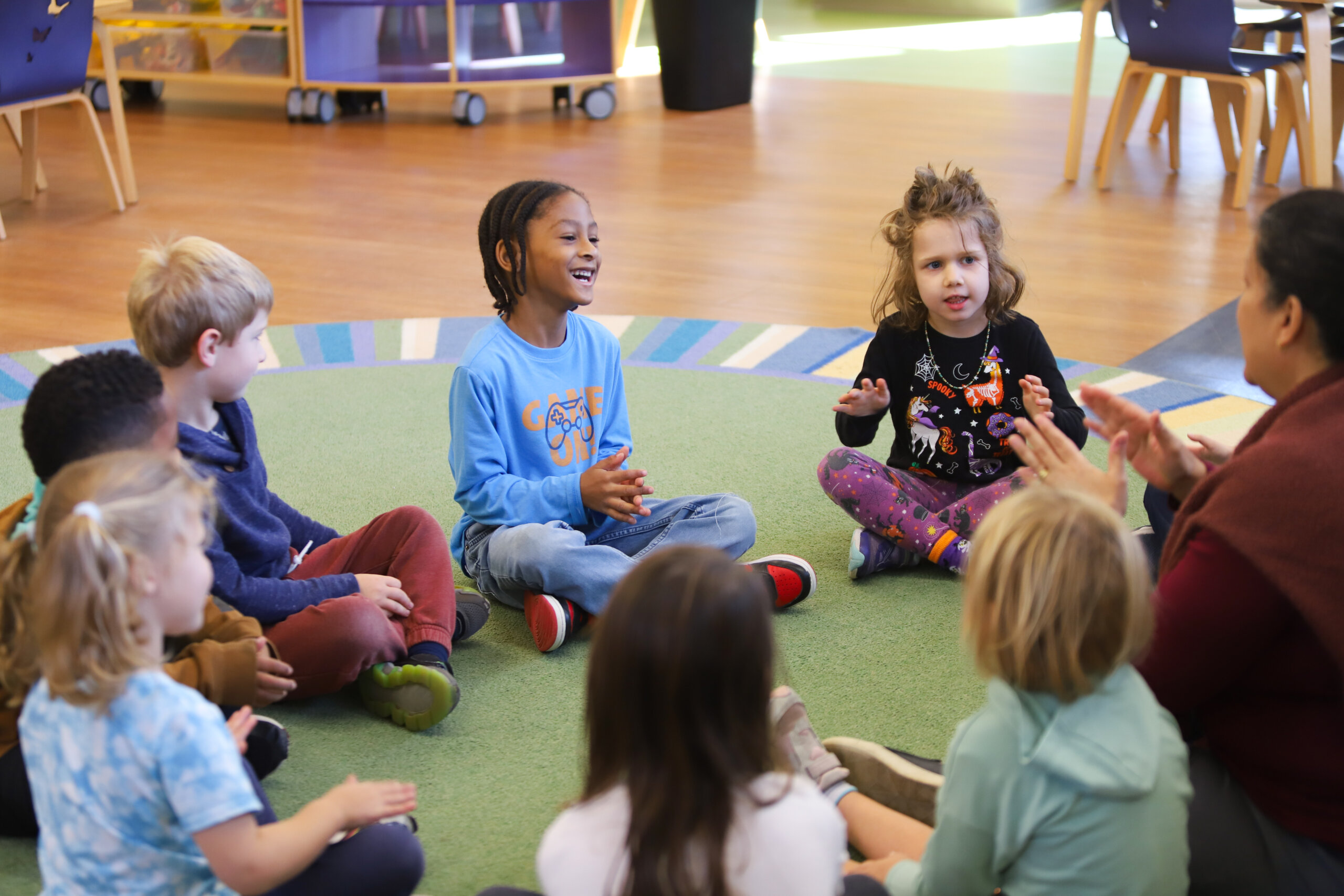
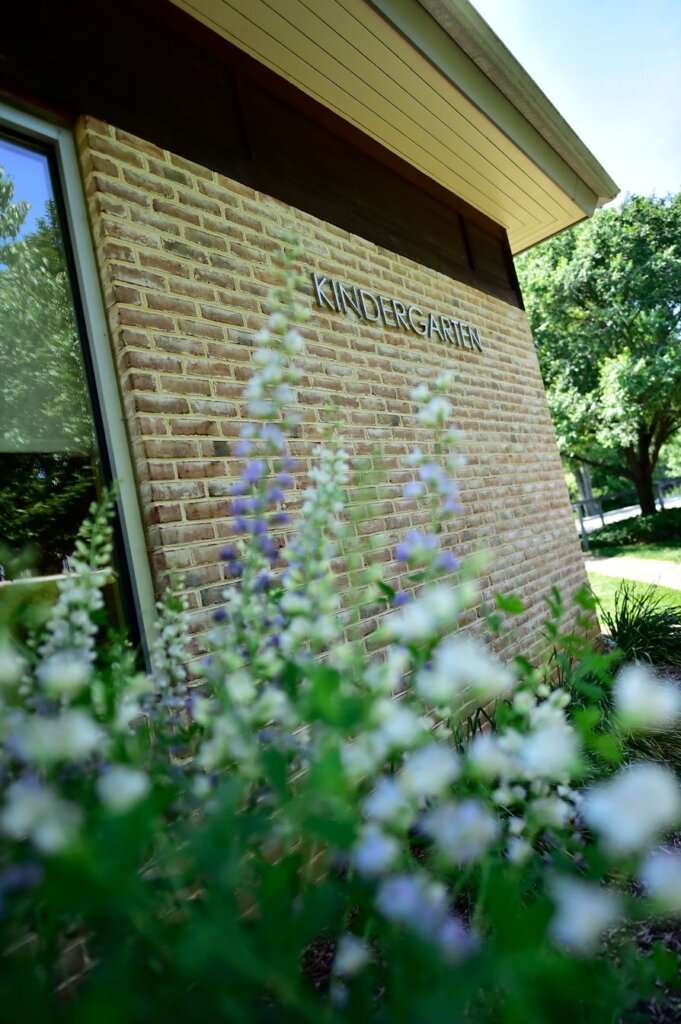
Our 100-Acre Campus
Our 100-acre campus is a thriving learning laboratory that includes woodlands, stream, pond, trails, and gardens. Our Pre-Kindergarten and Kindergarten (Pre-K/K) classrooms are located in the most southeast building on campus, adjacent to a stream and the entrance to the woods. There are three generously spaced classrooms, one for Pre-K and two for Kindergarten. Our young students travel to the main or “big” building weekly for library, art, science, P.E., and assembly sessions.
Before School
Classes start at 8:30 a.m.; Pre-K/K students typically arrive between 8 and 8:20 a.m. For parents who have work or scheduling constraints, Lower Schoolers may arrive as early as 7:30 a.m. for supervised early care. Students head to classrooms at 8 a.m., eager to greet teachers, stow belongings, sign in, and read the morning message before settling into quiet activities. A short time later, classes gather for morning meetings that launch the learning planned for their classroom communities.
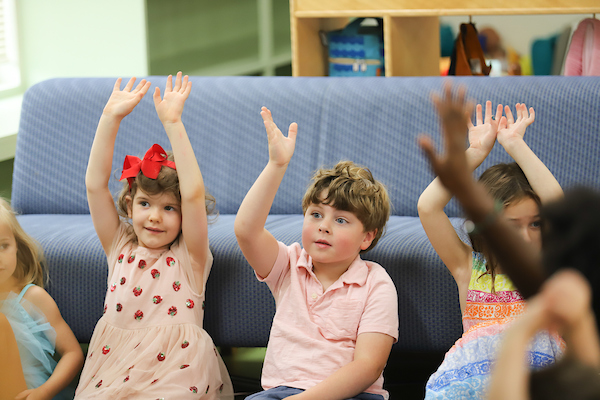
What is a Progressive Classroom?
When you enter the progressive classroom, you’ll find active engagement — lively, reflective discussion, small group work, documenting of research, and one-on-one conversations with teachers.
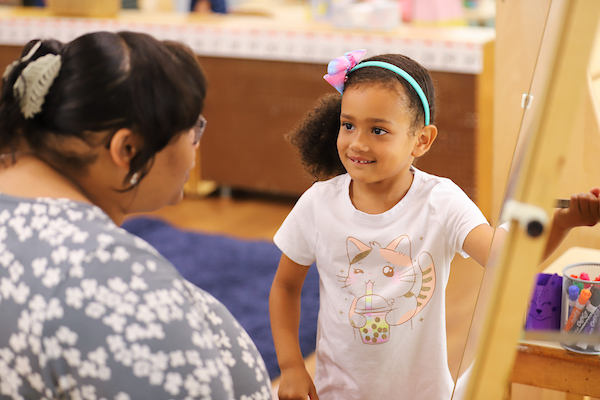
Across all disciplines and through every learning activity, students partner and collaborate with one another and with teachers, constructing knowledge about the world through inquiry and thoughtful analysis. In an environment of mutual respect, students contribute to the conversation; they challenge each other and their teachers, and all voices are valued and considered.
In a child-centered environment, where students are truly seen and heard, children feel empowered. Their confidence grows, they take risks, and they are ready and willing to tackle our challenging curriculum. From day one, teachers work to understand each student’s strengths and interests and identify areas for growth. By understanding the breadth and depth of what each individual learner brings to the classroom community, our experienced teachers are able to differentiate instruction to meet each student where they are, with plans to move forward, daily.
“I’m an artist! I’m a builder! I’m a good friend!”
Literacy
The foundation of our Pre-K/K literacy programs begin well before children sit down to read a book. Starting in our Pre-K classroom, teachers emphasize listening skills — listening to patterns, rhymes, and the messaging of words and storytelling — essentially, the basics of oral language. From there, children learn about letter recognition and formation. Our classrooms are filled with books and other forms of print, encouraging children to practice phonological awareness throughout the day in meaningful and purposeful ways. In our Kindergarten classrooms, students begin meeting in literacy groups three days a week. Reading specialists and Kindergarten teachers group children with similar skills, allowing individual and small group work to guide emergent and early readers. The love of reading and the building of literacy skills through planned lessons as well as through play are essential components of our curriculum.
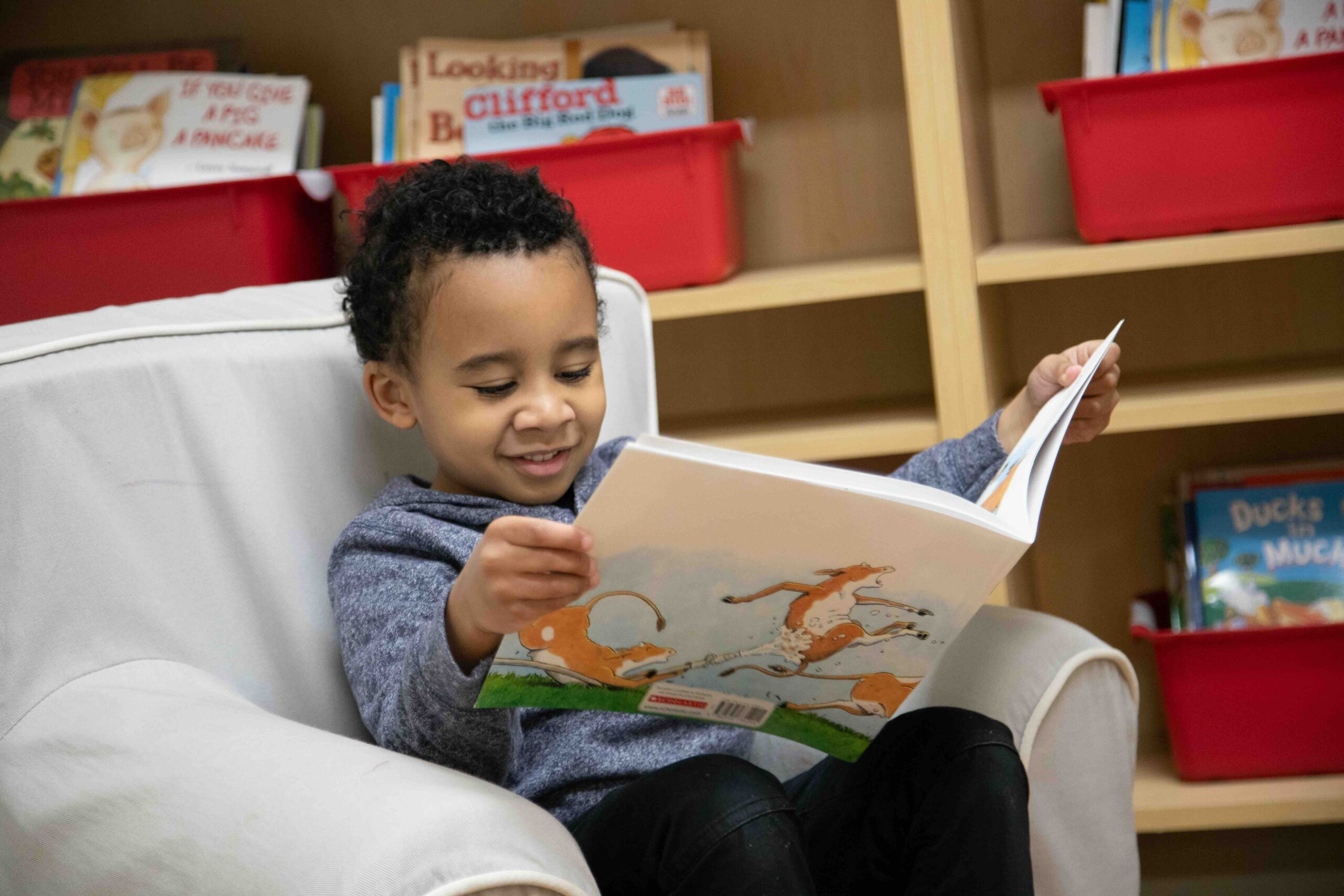
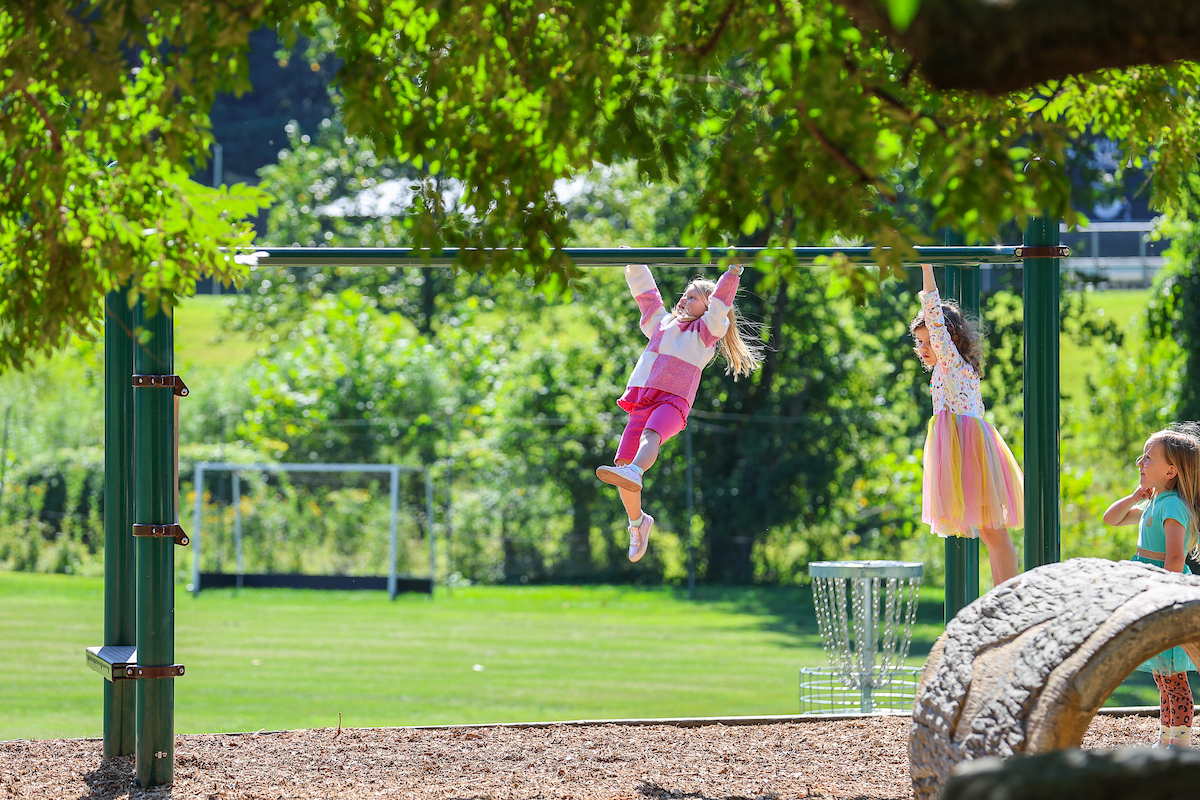
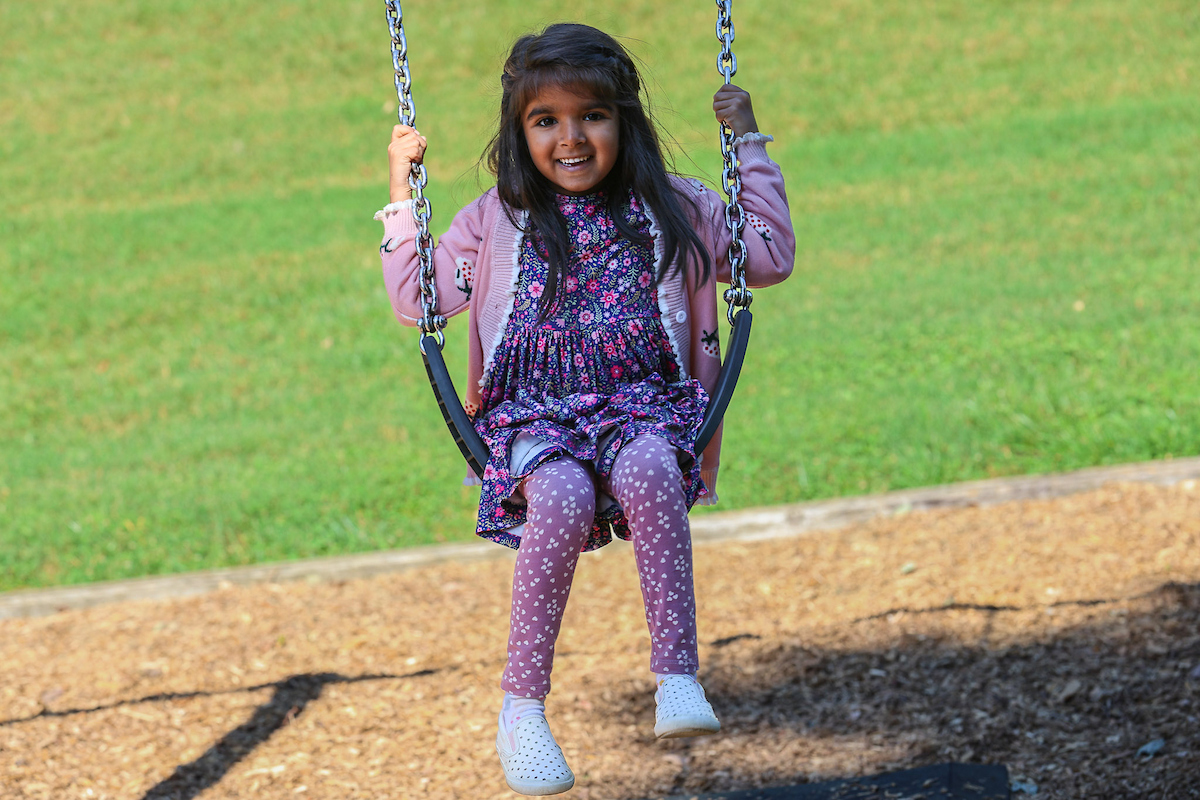
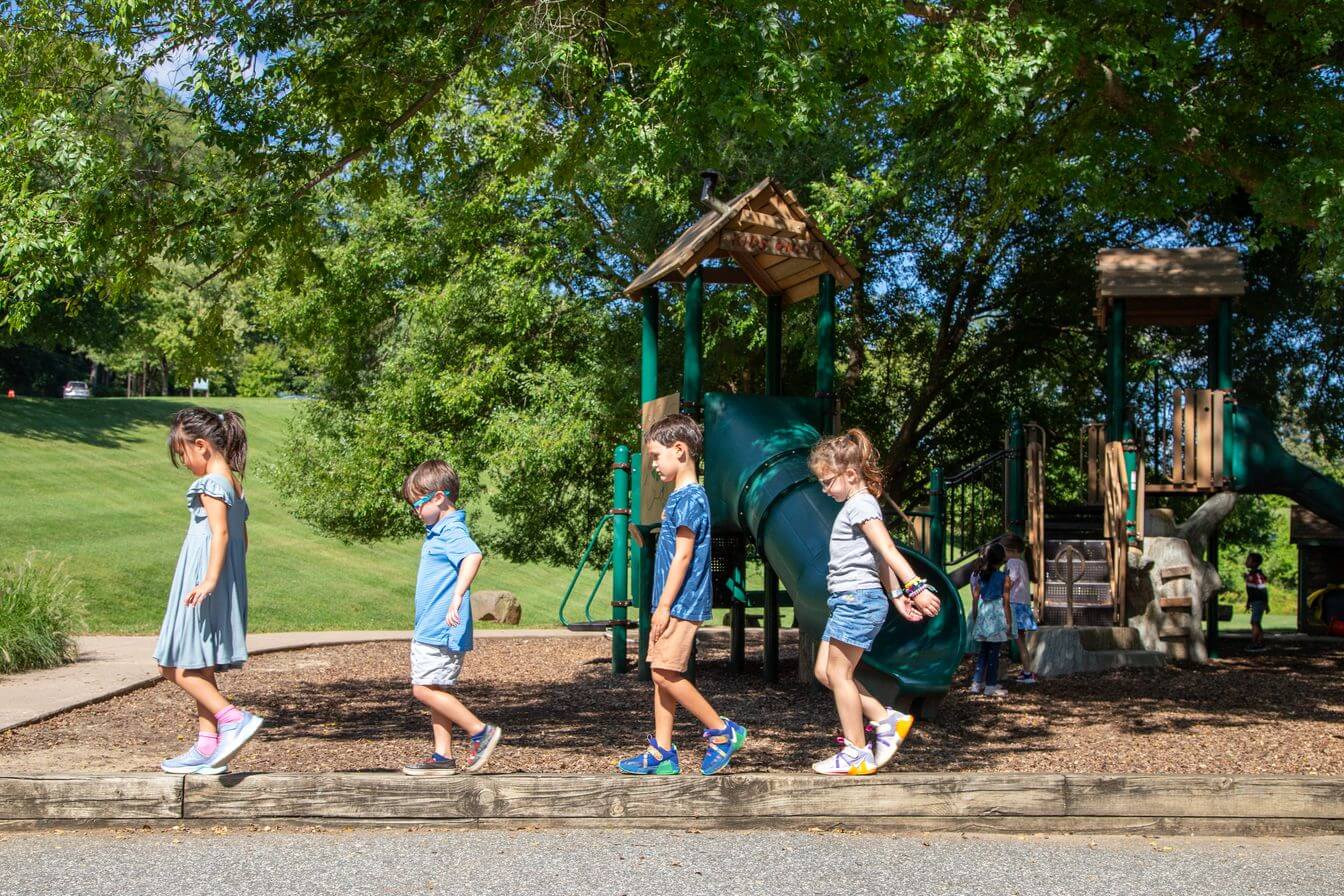
Recess
Recess is an invaluable part of the day for students. On our developmentally appropriate playground, Pre-K/Kindergarteners move, play, learn, and work together. Classroom teachers and assistants are the primary supervisors for all recess times, ensuring that students have a consistent and known presence, which encourages healthy risk-taking, the forming of new relationships, and problem-solving.
Lunch and Rest Time
Lunchtime is also a restorative and social time for our young learners. Pre-K/K students eat in their classrooms together with their teachers. There is no option to purchase lunch from our dining services as we find that after a long morning, it’s important for children to reconnect with home through the lunches packed by their families. Following lunch, students have rest time from 1-2 p.m. While some students sleep, others settle into quiet activities. Most importantly, it’s a time to rest their bodies and rejuvenate their minds as they ready themselves for the last part of the school day.
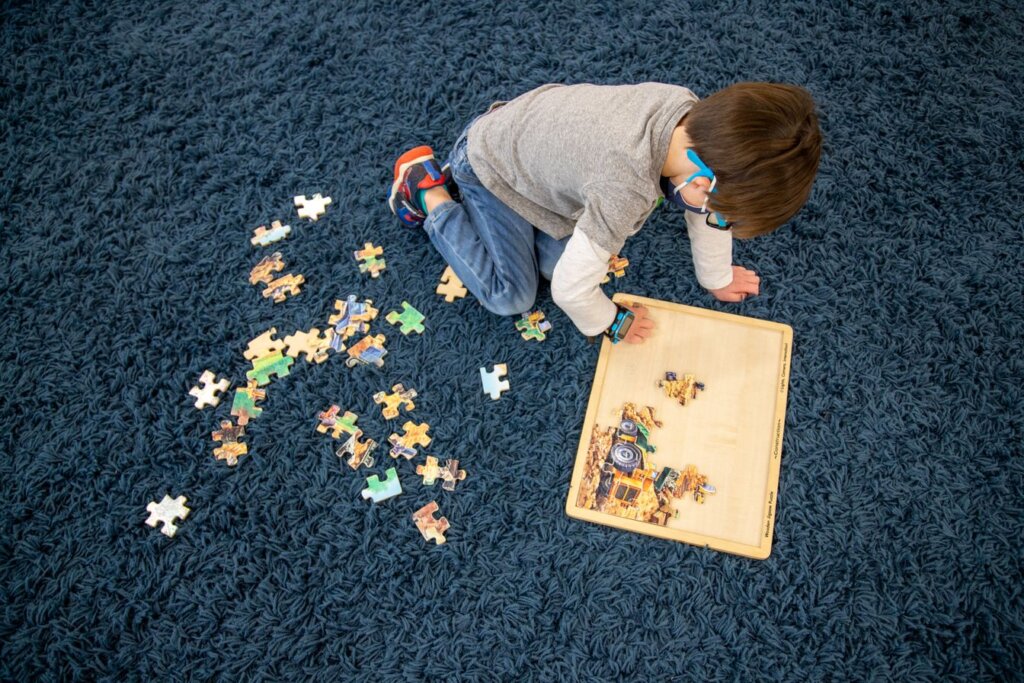
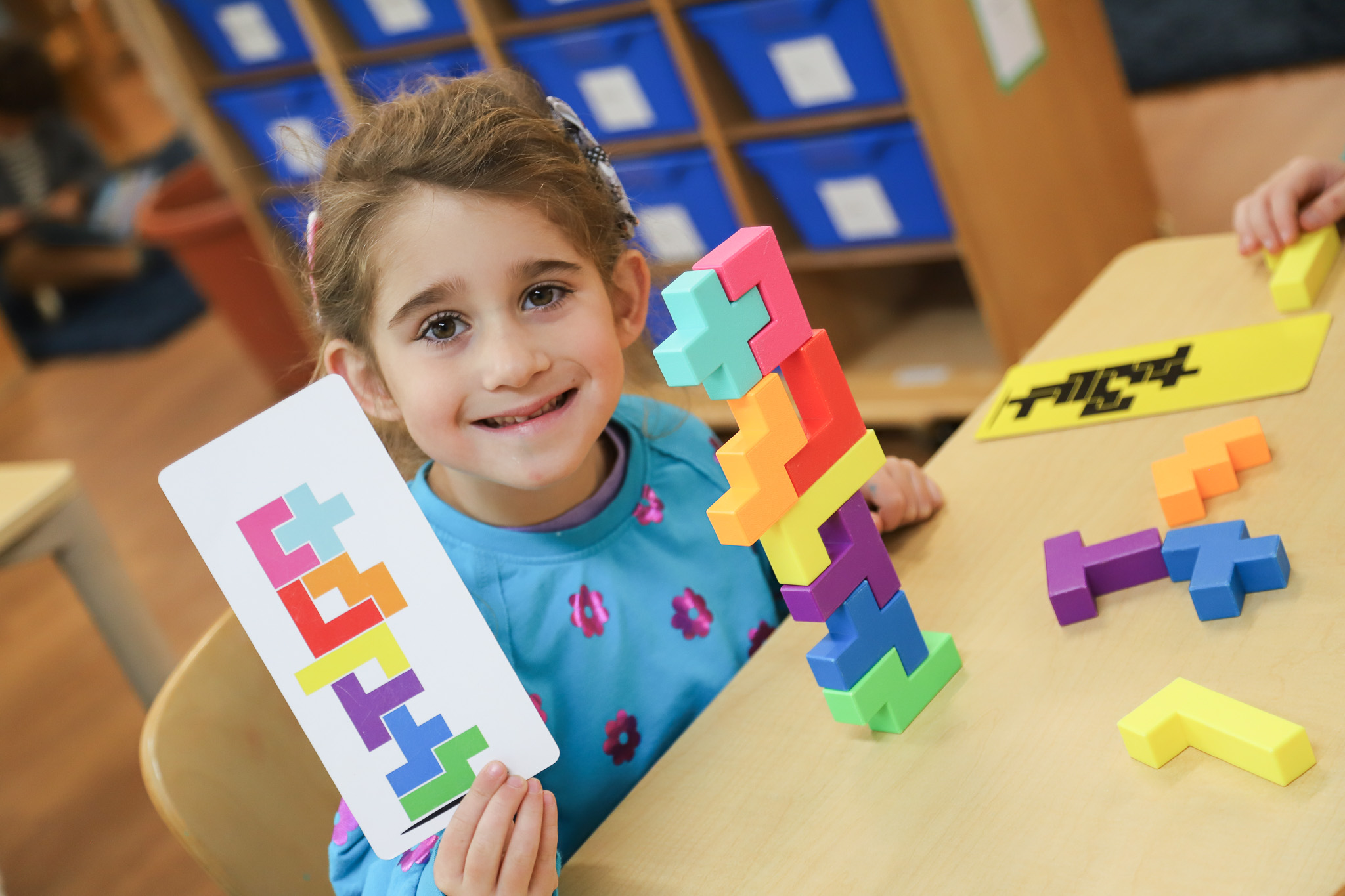
Worktime
The heart of the Pre-K/K day is worktime. While teachers provide structure by presenting options for activities related to literacy, writing, math, science, and art, children also have choice in deciding what they’d like to pursue. The goal is not to move around the room from one area to another, but rather to invest time thinking and learning about a particular project. This helps children develop stamina, and is the beginning of learning to revise their work — change a piece of writing, add to a block structure, touch up an art project. Teachers offer fresh possibilities each day, but sometimes children will elect to return to add onto a project. Worktime activities might include: block building, dramatic play, math, journal writing, games, puzzles, multimedia art exploration, science experiments, cooking, building with manipulatives like Legos, and stitching or finger knitting. One of the most important aspects of worktime is learning how to contribute positively to the shared learning environment.
Math
Play and mathematics are constants in a child’s world. Many important mathematical concepts are learned and put to use in the context of informal play. Our Pre-K/K classrooms offer rich mathematical experiences, which are grounded in play-based activities. In our constructivist program, children explore mathematical ideas, practice reasoning, and apply problem-solving skills. Building with blocks, for example, introduces children to concepts of shape, relative size, geometry, area, and measurement. Designing surveys promotes critical thinking and consideration of methods for collecting, recording, analyzing, representing, and presenting data. From early exploration of the properties of numbers and shapes through complex problems, the objective is to build and secure basic computational skills through the development of deep conceptual understanding and practice of mathematics.
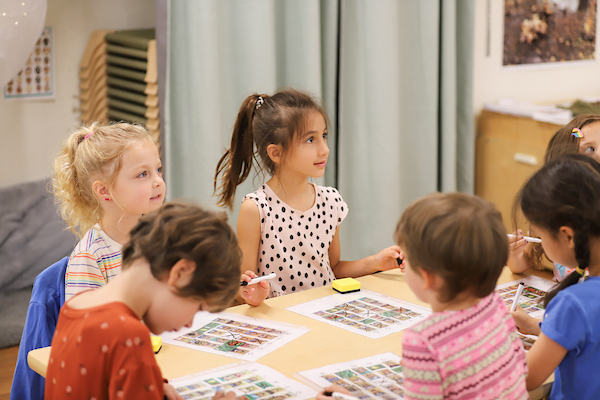

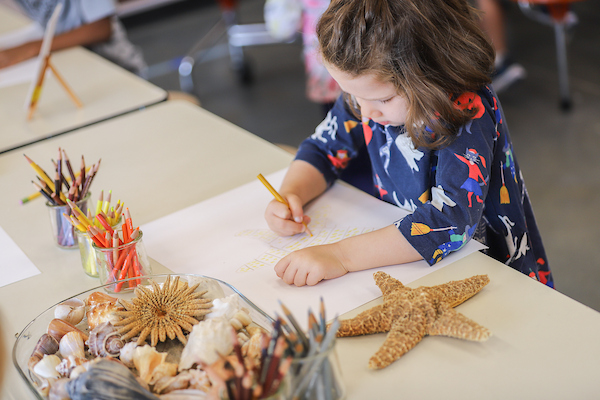
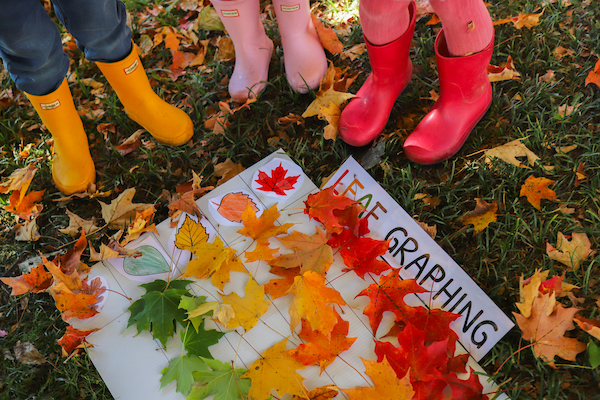
Time for Specials!
Throughout the day, all classes participate in special area subjects, including art, science, library, music, physical education, and Spanish. Our expert special area teachers often focus their classes on ways to integrate curriculum. Kindergarten artists joyfully explore tools and materials in the studio where often, the process of creating is as important as the end product! While painting, sculpting, printing, or learning to navigate attaching tools (glue, tape, staplers), children refine small motor skills and make meaningful art expressive of their minds and hearts. Inspirations stem from nature, recycled materials, professional artists, and of course, one another.
At Park, Kindergarteners develop the skills needed to investigate increasingly complex science. Whether exploring objects at the science shelf, observing insects on the playground, or figuring out how to “pump” on the swings, the hows and whys are central to our days. The curriculum consists of two interwoven branches: hands-on experiences that are a part of classroom work time, and Field Study — outdoor explorations of Park’s 100 acre-campus. Our young students record observations, frame testable questions, and plan and carry out investigations. Then they analyze their data and accurately communicate their discoveries and findings, proudly.
Community
At Park, we teach the whole child and acknowledge the importance for all students to feel a deep sense of belonging. Park is not only a school, but also an extension of home for all community members — students, faculty, staff, and parents. Within our structured curriculum, we are not afraid to let the children lead. Their questions, interests, and ideas matter.
Social-emotional learning is a cornerstone and foundation of our program at Park, and much of that development happens during structured and purposefully unstructured time together. We believe that finding one’s authentic self is only possible in an environment where children feel safe, trusted, respected, and encouraged to be and share their authentic selves with one another. This is ongoing, intentional work around identity, guided conversations about our similarities and differences, and teaching methods for conflict resolution that begins at the start of their journey at Park.

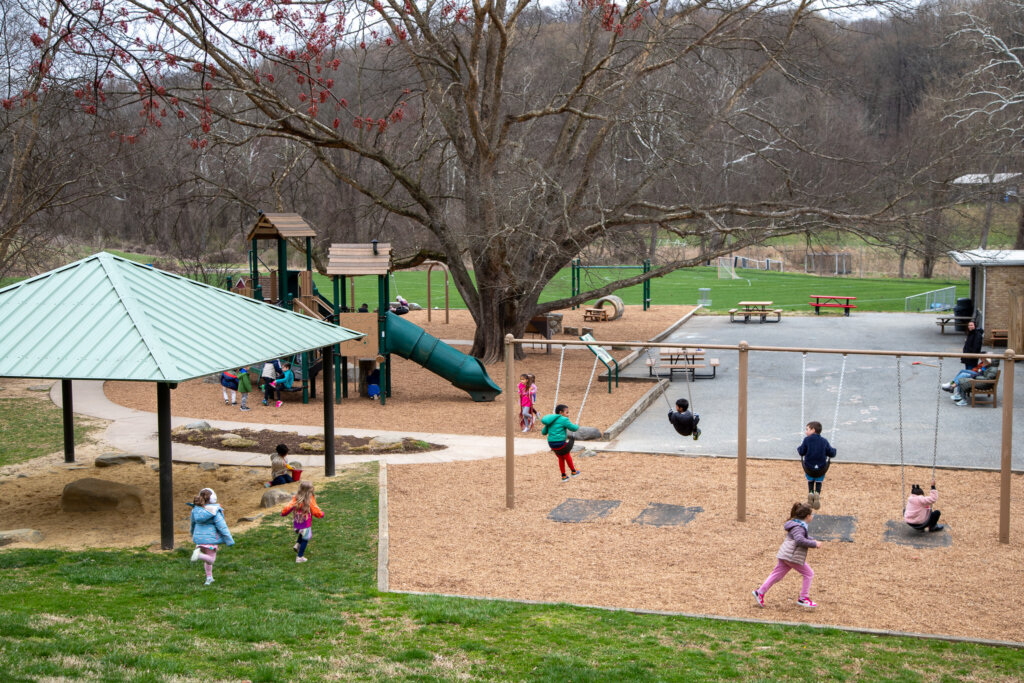
Transportation and Extended Day
The school day ends at 3 p.m. for our Pre-K/K students. Bus riders are escorted to the bus circle by Kindergarten staff, and those getting picked up proceed to the carpool circle with their teachers. (After school enrichment activities begin in first grade.)
Our Extended Day program offers care for children beyond the end of the school day. Our staff organizes a wide array of activities both inside of our Kindergarten building and out on the playground. A daily snack is included in the fee. Families may choose between coverage until 4:30 or 6 p.m., and from one to five days per week.
Are you looking to apply to Park’s Lower School?

